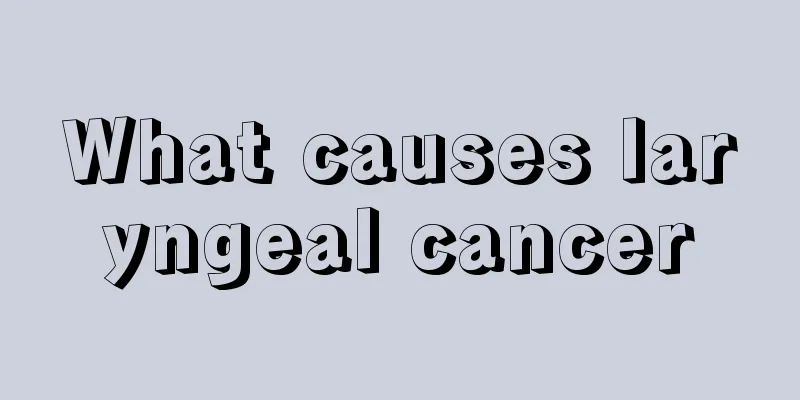What are the precautions for general anesthesia surgery?

|
During some surgeries, the body may be given general anesthesia. This is because the pain of the surgery is unbearable for the patient and general anesthesia is required. There are actually some precautions when performing general anesthesia. For example, after general anesthesia, the body's breathing may experience respiratory obstruction, retroglossia, laryngeal spasm, etc. During general anesthesia, certain complications may occur due to the effects of anesthetic drugs, direct surgical trauma, hyperreflexia of nerve reflexes, and the patient's original pathophysiological characteristics. After the surgery, the effects of anesthesia do not end. Even if the patient is awake, the effects of the medicine may not be completely eliminated, and the protective reflexes may not return to normal. If the patient is not aware of this, "accidents" are inevitable. If the possibility of complications is not taken into consideration during anesthesia, or if there is a lack of experience or knowledge, there will be no preventive measures against complications. Complications are not only likely to occur, but may even lead to accidents. 1. Complications of the suction system Airway obstruction Causes: 1. Mechanical: tongue prolapse, secretions; Functional: laryngeal spasm, bronchospasm. Treatment: Tongue prolapse can be relieved by having the patient tilt his head back, open his mouth, and support his jaw. Laryngospasm and bronchospasm should be treated with oxygen or pressurized oxygen. In severe cases, succinylcholine should be given and endotracheal intubation should be performed. Tongue fall Cause: During general anesthesia or coma, the tongue falls due to gravity and sticks to the posterior wall of the pharynx, causing difficulty in breathing and snoring. In severe cases, it can lead to complete obstruction of the airway. Treatment method: Lift your lower jaw to solve the problem. Laryngeal spasm: Spasm of the laryngeal muscles causes the glottis to close, resulting in functional obstruction of the upper airway. Causes: Light anesthesia, hypoxia, irritation of the laryngeal or distant sensitive areas. Treatment: Mild: deepen anesthesia, eliminate local irritation, and provide oxygen inhalation. Moderate: In addition to the above methods, pressurized oxygen inhalation is required. Severe: Rapidly inject succinylcholine and perform endotracheal intubation. Cricothyroidotomy can also be performed as a last resort. Lower airway obstruction: obstruction below the glottis. Cause: The most common cause is aspiration of foreign bodies that cause tracheal or bronchial obstruction. Treatment: Aspirate or remove the obstruction as much as possible. If this is not possible, the patient has to be kept in place by using body positioning, or by inserting a double-lumen endobronchial tube to isolate the patient and protect the healthy lung from damage. |
<<: Anemia has symptoms, be careful if these occur!
>>: How to relieve severe skin allergies
Recommend
External factors leading to nasopharyngeal cancer
What are the external causes of nasopharyngeal ca...
What should I do if my feet peel and smell?
Nowadays, many people often experience symptoms o...
Which five types of people are prone to glioma
People who are prone to glioma may have a family ...
What to do if a pill gets stuck in your throat?
The best way to deal with illness is to take medi...
What to do if bitten by a spider
We often see spiders in our daily lives. Accordin...
Causes of swollen feet in late stage of nasopharyngeal carcinoma
There are also malignant diseases. When advanced ...
These 4 symptoms can easily help you distinguish between rectal cancer and hemorrhoids
Because the bowel movement symptoms of rectal can...
The blood vessels in my head are throbbing
Some people may feel a throbbing pain in the bloo...
What are the hazards of nuclear leakage to human body
Nuclear energy is a very important energy source ...
What are the hazards of microwave heating
I don’t know when it started, but this piece of n...
What are the symptoms of lung cancer brain metastasis? 8 symptoms indicate lung cancer brain metastasis
As we all know, cancer is scary because cancer ce...
Why can't melasma be treated with laser?
With the increase of life pressure, the increase ...
Scraping therapy for skin cancer using new technology
For the treatment of more stubborn skin cancer, w...
What tea to drink for acne on the chin
Acne is a skin condition that many people will ha...
Ranking of the "contributors" to moisturizing the intestines and nourishing the skin: bitter foods are the best for preventing cancer and detoxification
tea The detoxifying effect of tea was recorded as...









